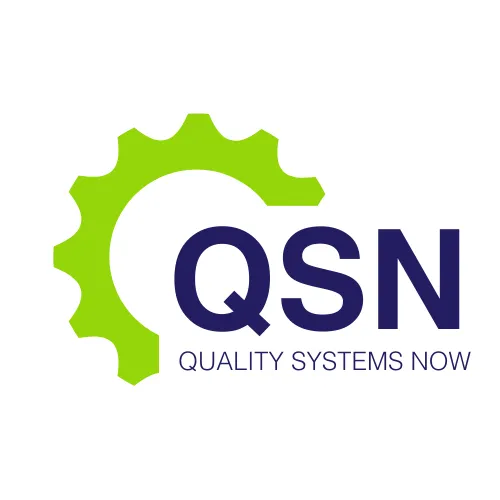NEWS

Boost Your Regulatory Compliance Skills
In the life sciences sector, regulatory compliance is a critical operational pillar that directly impacts product quality, market access, and patient safety. Whether operating within pharmaceutical manufacturing, medical device production, contract testing laboratories, or biotechnology research, adherence to global regulatory frameworks such as Good Manufacturing Practice (GMP), Good Laboratory Practice (GLP), and ISO standards is non-negotiable. To effectively manage this complexity, professionals must possess a robust and evolving skill set. This article, developed by QSN Academy—the educational division of Quality Systems Now—explores the key competencies, scientific principles, and structured learning paths required to enhance regulatory compliance capabilities in the therapeutic goods industry.
The Scientific Foundation of Compliance
Regulatory compliance is intrinsically tied to scientific discipline. GMP, for instance, is underpinned by principles of pharmaceutical science, microbiology, chemistry, and risk management. These principles guide the development, manufacture, and quality control of products to ensure they are safe, effective, and consistently produced. The scientific rigour of compliance ensures that variables are controlled, processes are validated, and outcomes are predictable.
For example, process validation is an evidence-based exercise that relies on statistical sampling and analytical testing to demonstrate consistency. Environmental monitoring is grounded in microbial ecology and aseptic technique. Data integrity principles such as ALCOA+ (Attributable, Legible, Contemporaneous, Original, Accurate, Complete, Consistent, Enduring, and Available) are derived from both regulatory expectations and sound scientific recordkeeping. Building expertise in these technical areas is essential for compliance professionals.
Core Competencies in Regulatory Compliance
To operate effectively in regulated environments, professionals must master a core set of competencies. These go beyond knowledge of regulations and encompass scientific reasoning, problem-solving, and practical application. QSN Academy identifies the following key domains:
1. Regulatory Knowledge
Understanding the specific regulations applicable to your region and product category is foundational. This includes the PIC/S Guide to GMP, FDA 21 CFR Parts 210/211/820, EU Annexes, ISO 13485, and TGA-specific requirements. Professionals should also understand the role of ICH guidelines, pharmacopoeias, and country-specific regulations. Keeping abreast of changes and updates is vital, as non-compliance often stems from outdated practices.
2. Risk Management
Risk-based thinking is at the heart of modern compliance frameworks. Professionals must be adept in tools such as Failure Mode and Effects Analysis (FMEA), Hazard Analysis and Critical Control Points (HACCP), and Ishikawa diagrams. These tools help identify, assess, and mitigate risks throughout the product lifecycle. Effective risk management ensures decisions are scientifically justified and proportionate to the potential impact on product quality and patient safety.
3. Quality Management Systems (QMS)
A functional QMS is required to implement and sustain compliance. Professionals must understand the structure and interdependencies of QMS elements including deviation management, CAPA (Corrective and Preventive Action), change control, complaint handling, internal audits, supplier qualification, and training systems. Familiarity with QMS software platforms and electronic records (ERES) is increasingly important in a digital environment.
4. Documentation and Technical Writing
Scientific writing skills are critical for producing SOPs, validation protocols, technical reports, and regulatory submissions. These documents must be clear, accurate, and compliant with documentation standards. Professionals should be trained in the principles of good documentation practice (GDP) and understand the legal and regulatory significance of written records.
5. Validation and Qualification
Process validation, equipment qualification (IQ/OQ/PQ), and method validation are required to demonstrate that systems perform as intended. Professionals should be capable of designing validation protocols, analysing results statistically, and interpreting data in a regulatory context. A sound understanding of lifecycle validation and the Process Validation Guidance (FDA 2011, EMA Annex 15) is essential.
6. Audit Readiness
Whether preparing for internal audits, customer inspections, or regulatory audits, professionals must understand audit processes, how to conduct audit responses, and how to manage documentation retrieval under pressure. The ability to explain procedures, justify decisions, and present data coherently is a skill honed through experience and targeted training.
The Role of Continuous Learning
In regulated industries, static knowledge is insufficient. Guidelines, expectations, and scientific understanding evolve. Therefore, continuous professional development is imperative. At QSN Academy, our training model is based on the scientific method: observe, understand, apply, and improve. Programs are designed to reinforce both foundational knowledge and emerging best practices.
Short courses, certification programs, and interactive workshops provide structured learning pathways for personnel at all levels. From GMP fundamentals to advanced validation and regulatory affairs, training should be tailored to individual roles while promoting cross-functional understanding.
Additionally, practical training using real-world case studies, simulated inspections, and hands-on QMS exercises enhance knowledge retention and application. Competency assessments ensure that learning outcomes are measurable and actionable.
Soft Skills that Strengthen Compliance
While technical expertise is essential, several soft skills significantly enhance regulatory effectiveness. These include:
Critical thinking: the ability to analyse data and interpret regulatory expectations objectively.
Communication: the capacity to convey scientific and procedural information clearly across departments.
Attention to detail: a key trait in documentation review, validation, and deviation management.
Integrity: a personal and organisational commitment to ethical conduct and transparency.
Teamwork: working collaboratively with production, quality, regulatory, and senior leadership to maintain compliance.
QSN Academy integrates these soft skills into training programs to ensure well-rounded professional development.
Building a Career in Compliance
The demand for qualified compliance professionals is growing, particularly as regulatory scrutiny intensifies and global supply chains expand. Individuals seeking to advance in this field should aim for certifications, such as GMP/GxP certifications, regulatory affairs credentials, or quality auditor qualifications. Engaging in industry conferences, webinars, and forums supports networking and ongoing learning.
QSN Academy offers pathways for early-career professionals, mid-level managers, and senior leaders. Our mentoring approach pairs knowledge acquisition with applied experience, bridging the gap between theory and practice.
The Value of Organisational Commitment
An organisation’s commitment to compliance training should be proactive, structured, and adequately resourced. Relying solely on reactive or compliance-driven training results in knowledge gaps and inconsistent performance. By institutionalising education as part of the quality culture, companies reduce regulatory risk and empower staff.
Leaders must advocate for learning as a strategic asset, not merely a compliance obligation. Regular training reviews, investment in learning technology, and alignment of training outcomes with business objectives are signs of mature compliance practices.
Talk to QSN Academy about upgrading your organisational compliance skills
Enhancing regulatory compliance skills is a scientific, strategic, and ethical imperative for professionals in the therapeutic goods sector. With increasing regulatory expectations, globalisation, and technological advancement, the ability to interpret and implement regulatory frameworks with precision is critical. QSN Academy supports professionals and organisations by delivering scientifically grounded, practical, and role-specific training that strengthens both individual capability and organisational resilience.
By investing in compliance education, companies not only meet regulatory requirements but also build a quality-driven culture that supports innovation, trust, and sustainable success. Whether you are entering the field or advancing your career, boosting your regulatory compliance skills is a decisive step toward excellence in the life sciences.
